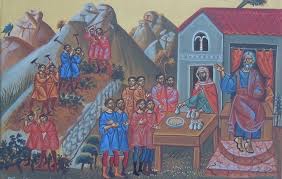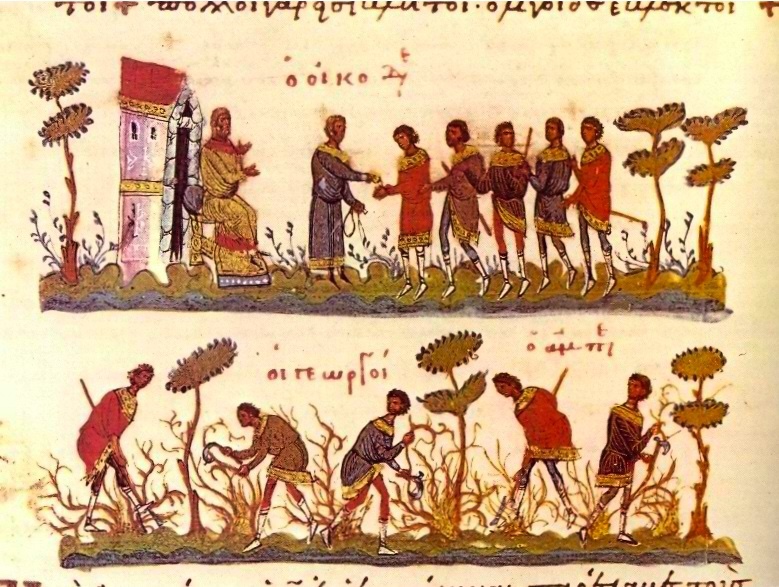THE PARABLE OF THE WORKERS IN THE VINEYARD WHO RECEIVED EQUAL PAY (MATT 20:1–16) by Archbishop Averky

This parable has as its purpose to explain how it could be that the last could become the first. This will come about as a result of God’s mercy and goodness. The kingdom of God is here imagined as a master of a vineyard who hired workers to harvest the grapes. When he agreed with the first workers he hired in the morning, he agreed to pay them one denarius a day. At the end of the day, he paid the same amount to every worker, even those who came to work at the third, sixth, ninth, and even the eleventh hour. The ones who worked the longest began to complain, considering their pay to be unfair, but the master countered: “Friend, I am doing you no wrong. Did you not agree with me for a denarius [penny]? Take what is yours and go your way: I wish to give to this last man the same as to you. Is it not lawful for me to do what I wish with my own things? Or is your eye evil because I am good?”
A denarius was roughly worth a day’s wages for a common laborer. The day in Hebrew reckoning was divided into twelve hours, which were counted from the morning, beginning with sunrise. The meaning of this parable is that the Lord Himself rewards those who serve Him. People cannot make deals with God or expect to demand of Him any conditions. The Lord rewards people only according to His goodness. It is necessary also to know that in the work of man’s salvation so little is done by the person himself that there can be no talk of fair exchange. The Lord does not reward because of a debt that needs to be paid, but by grace, with full freedom, according to His Own providence.
Thus, whoever labors less might receive the same as he who labors more. In this is contained all the hope of sinners, who can attract God’s mercy and the grace to wash them of their sins with one repentant sigh, coming from the depths of the soul. What was the purpose of telling this parable? Peter had just asked about the reward the apostles should expect for following Christ. The Lord did not immediately rebuke this pride of an immature mind; quite the opposite—He promised them great rewards, but now through this parable He shows them that their reward does not depend on their own merits but only on the mercy of God. It may end up being thus: the ones with the most merits may receive the least reward, while those who had the fewest merits, calling on the Lord in the last moments of their life, could receive the greatest reward.
In conclusion, the Lord said, “For many are called, but few chosen.” In other words, although many, even all , are called to eternal blessedness in the kingdom of Heaven, those who will be chosen for this blessedness will end up being only a few. Of course, as in all parables, one should not find hidden meaning in every aspect of this parable either. The main idea is the most important thing, the essential thought behind it: that a person is rewarded by God not based on how many good things he has done but only by the mercy of God




